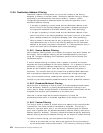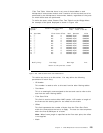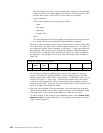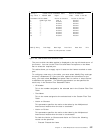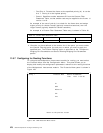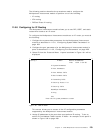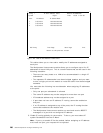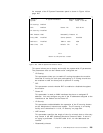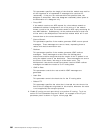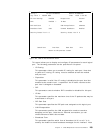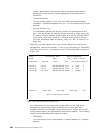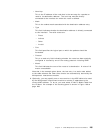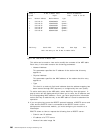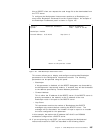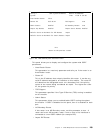This parameter specifies the length of time that the module may wait for
all the fragments of a fragmented IP message to be received for
reassembly. If they are not received within the specified time, the
datagram is discarded. Note that datagram reassembly takes place at
the destination of a datagram only.
•
Proxy ARP
If the module receives an ARP request for a host whose network or
subnetwork address is assigned to one of its ports or if the module
knows a route to the host, the module sends an ARP reply containing its
own MAC address. Subsequently, all the packets directed to that host
will be sent to the Multiprotocol Interconnect module which will in turn
forward them to the correct destination.
•
Source Quench
This parameter specifies if the module generates ICMP source quench
messages. These messages are sent to hosts, requesting them to
reduce their data transmission rate.
•
Redirect
This parameter specifies if the module generates ICMP redirect
messages. These messages are sent when the Multiprotocol
Interconnect module recognizes that the sender of the IP packet is not
using the optimal route to the destination. These messages are sent to
the source of the frame, informing it of the faster route. The
Multiprotocol Interconnect module processes received ICMP redirect
messages and adds the routes to its IP routing table.
•
ICMP tx Rate
This parameter controls the rate at which ICMP messages are
generated.
•
Hash Size
This parameter controls the hash size for the IP routing table.
•
Default TTL
This parameter specifies the value that is inserted into the
time-to-live
field of the IP datagrams originated on this module, whenever the value
is not supplied by the transport protocol.
6. Enable IP routing on each port which is to perform IP routing. To do so,
select
IP Port Parameters
from the
IP Menu
. An example of the IP port
parameter panel is shown in Figure 164 on page 283.
282 8260 Multiprotocol Intelligent Switching Hub



